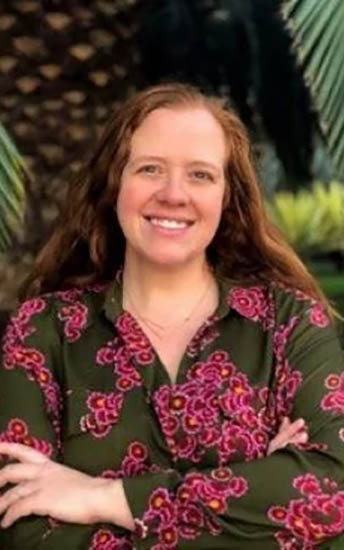
Rev. Dr. Megan Visser
Adjunct Faculty
University of California San Francisco, Ph.D. in Sociology from the Department of Social and Behavioral Sciences
Graduate Theological Union, Master of Arts in Ethics/Society and Certificate in Women’s Studies in Religion
Biography
Rev. Dr. Megan Visser is a research chaplain scientist and returns to SKSM as an adjunct instructor to teach our Introduction to Ethics course (Spring 2024). She served as Assistant Professor of Ethics and Society at Starr King from 2014-2020 and is delighted to engage with graduate students once again in real-world applications of ethical theories across cultures and traditions. Dr. Visser is a hospital chaplain fellow and clinical researcher at Children’s Hospital, Los Angeles in the Department of Spiritual Care, and an ordained Unitarian Universalist minister. Her research explores how spiritual care and medical care are practiced together and shape the lives of people in marginalized communities. She holds a Ph.D. in Sociology from the Department of Social and Behavioral Sciences at the University of California San Francisco (June 2022). Her Master of Arts in Ethics/Society and Certificate in Women’s Studies in Religion from the Graduate Theological Union continue to fuel her intellectual and community work. At Children’s’ Hospital Los Angeles, Dr. Visser’s research demonstrates how chaplains address drivers of health inequity and how religious/spiritual interventions may be a promising practice for eliminating inequalities at the bedside. Her current funded project explores how hospital chaplains help shape the meanings and practices in a pediatric intensive care unit (PICU), including family engagement in decision-making at the end of life. Her last publication focused on end-of-life decision-making among people exiting chronic homelessness. Other projects have addressed issues at the intersection of bodies, spirit and justice: how religious and spiritual practices have shaped the everyday lives of Women of Color with heart disease; emotional resilience of frontline abortion care providers; multi-cultural community engagement in ethics of clinical research; and Womanist/Black feminist contributions to the principle of respect for autonomy in medical care.